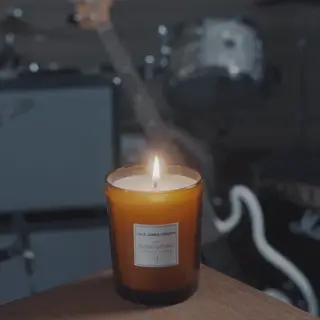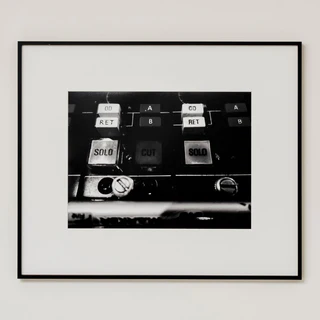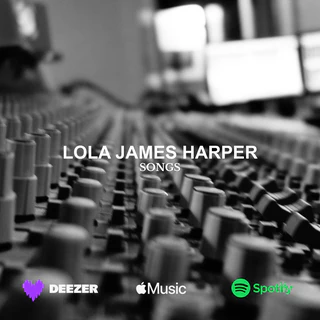re: Future Lab featuring Rami Mekdachi
Rami Mekdachi was born in 1971 in Beirut, Lebanon, and raised in Paris, France. He lived in Lancaster, England for a few years, and spent some summers in the San-Juan Islands and Seattle, Washington. Rami is a photographer, musician, movie director, and founder of the worldwide Art Project, Lola James Harper. He has spent 15 years traveling with his family of 4, recording music, filming their music sessions, encounters, talks, and road-trips. After 2 years of private screenings in Los Angeles, London, Paris, Toronto and 3000 delighted viewers, his film 'WITH' just started its run for 2020 international film festivals and yet awarded BEST TRAVEL DOCUMENTARY at GLODEN STATE FILM FESTIVAL, nominated for BEST DOCUMENTARY, BEST CINEMATOGRAPHY, BEST EDITING at LONDON IFF.
'Globe-trotting through the years, a camera and a guitar in my hands, discovering the world, family and friendship through music, I wanted to share how togetherness and slow-life can be… Music is not a sound or a song, music is what embraces us all and gathers our souls...Playing music is like talking all together at the same time to create a sentence that no one had in mind before and that’s the magic of togetherness...I had the chance to meet and share moments with amazing friends of friends of friends...Our songs are like a sound-picture of our encounter and a hint on what happened then... Playing together is a way to be anchored in the present together… this movie is a poetic and musical tale shaping a decade of road-trips, encounters, talks and dreams to count a search of peace, togetherness and present...'., (Rami Mekdachi on his film 'WITH - Life is a song we should play together', 2020).
MADELEINE SCHWINGE:
Rami, we met during a music recording at a Lola James Harper pop-up in Paris. Let me say, it is really amazing what a wonderful universe you have created. Through the power of music, you connect people, with your camera you take them on journeys of discovery, and furthermore you invent scented stories for hotels, fashion labels, and even motorcycle garages and favorite places in cities. You are an artist expressing in various fields. What do you think is the mission of contemporary art and what is the role of artists in society? Can artists stimulate personal and social transformation? What influence could art have on social change?
RAMI MEKDACHI:
My first passion is music. Even if I experienced all sorts of projects, I am a musician. And the way I want to make music is to get people together, it’s about togetherness, trust, cocreation, it’s a poetic way. And poetry is about freedom. Within it you accept that people think differently. Take the punk movement, for example, or the beat generation, iconic works like 'On the road' or 'Easy Rider'. Art is about one thing: it inspires people. Certainly, it is sociological. It starts to become political when you use it for a social goal.
MS:
What role does storytelling play in times of great crises and upheavals? In the light of the catastrophes and crises that characterize our current world - are we at all allowed to have the boldness to hope and imagine a better future?
RM:
You know, I believe that humans are veritable dream machines. That is why stories are so important. Future is about generating new stories and new energy. And also in art it's about feeding people with ideas, tales and images. Art is made to make people surf their way through stories. In the 1970s, for example, the art movement made people feel new inspiration and unlocked a new energy.
It is the same in our own lives: You have to 'deal with the shit'. And at least, if it doesn't require all your energy, you can always fall back on art. Art is often the only source of new momentum.
Everything revolves around stories. After being locked up for two months now, I wonder why people should ever go back to their usual workplace at all... You lose so much time on public transport. We could reinvent a new society with a more fluid work process. There are many things we could reinvent with technology...
MS:
What might a dialogue between art and other disciplines look like in order to promote innovation and shape the future? Which other disciplines would you as an artist like to get in touch with? What new ideas and approaches could emerge out of this?
RM:
I think of the craftsmen, the wax masters with whom I work to make the candles, or even the great tea or coffee masters... The development of my perfumes brings me so much on a personal level! There is, for example, the repetitive routine of the craftsmen, the need to pay close attention to details. Craftsmanship consists of a touch of art plus a touch of science. In artisan work, I find a certain devotion, a balance through manual skills. I have known the wax masters for about 20 years already. But now I finally know how to mix... and I can say I really love the rituals the craftsmen have.
MS:
What do you personally wish for a better tomorrow? Assuming that a better world could be built on the ruins of the old one - what would it look like in your opinion?
RM:
In my opinion it is not a problem at all that different people have different dreams. Actually, this is my own utopia: Let's be 'with', let's be 'for' and stop being 'against' something... I call it 'withdom', which by the way could have also been a good title for my first long film, which will be released soon.
For a better tomorrow, I think we need to take more time for sensual things. We should free up time for the real things, for what really matters: family, friends, travelling...
I would also recommend teaching the new generation how to find information, how to navigate the treasure trove of digital information available through all kinds of devices. At the moment, for example, I'm teaching a teenager of 16 how to become an editor. And this is in fact is part of my lessons, because it generally is a neglected topic in education. In the end, it's all about giving people more hope and self-confidence.
MS:
It is often said that the extraordinary power of art lies in always courageously and fearlessly seeking the new and always starting all over again from scratch on a blank piece of paper. Do you have particular strategies, rituals or techniques to find your way into a new work and start a new project from scratch?
RM:
Whatever the project is, I try to find another person to cocreate with. My belief is that when you put two mirrors one in front of the other, you create infinity. “Withdom” is about not coming with preconceived ideas, but to be open and learn how to coexist and cocreate.
MS:
Thank you very much, dear Rami, for taking the time and this great conversation. I am sure your film will inspire the hearts of many people. I wish you all the best for any of your exciting projects !
The interview was conducted by telephone in May 2020 during the Corona Lockdown.
Text and interview: Madeleine Schwinge








